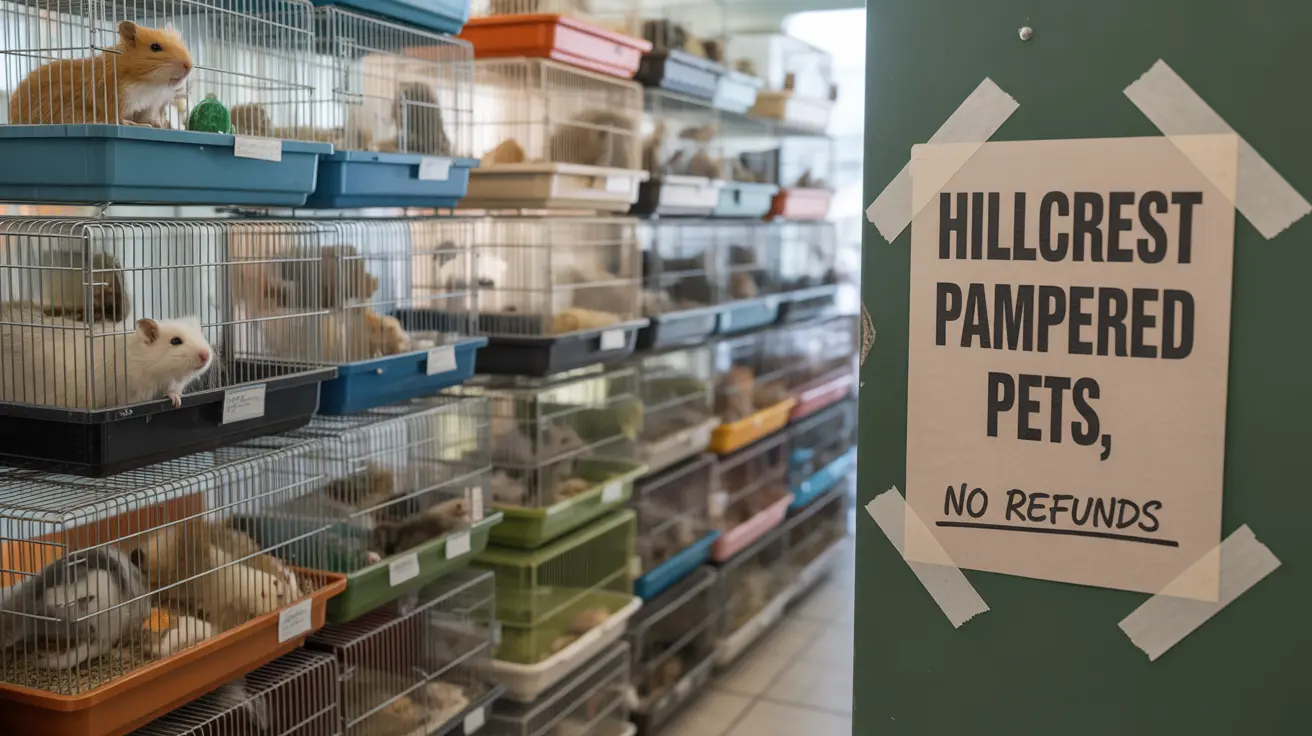Following the revocation of her pet dealer licenses due to animal cruelty convictions, the owner of Hillcrest Pampered Pets in Gillette, Wyoming, has found a new way to continue selling animals. Patricia Case now claims she is brokering animal sales through private parties and foster networks, raising serious concerns about regulatory gaps in pet store oversight and animal welfare protection.
This development highlights a critical issue facing pet owners and animal welfare advocates: how former licensed dealers can potentially circumvent regulations after losing their official credentials. For pet parents in the Gillette area and beyond, understanding these practices is essential for making informed decisions about where to acquire new family members.
Animal Cruelty Violations Lead to License Loss
The situation at Hillcrest Pampered Pets escalated after Patricia Case received a second animal cruelty conviction, which ultimately resulted in the revocation of her pet dealer licenses. While the specific details of these violations have not been fully disclosed, the severity was sufficient for regulatory authorities to take decisive action against the business.
Pet store licensing regulations exist to protect animals from neglect and ensure proper care standards. When these licenses are revoked, it typically indicates serious and repeated failures to meet basic animal welfare requirements. For responsible pet owners, this serves as a reminder of the importance of researching any pet seller's credentials and reputation before making a purchase.
The Shift to Brokering Animal Sales
Rather than ceasing operations entirely, Case has adapted her business model to work around the license revocation. By positioning herself as a broker for animals sold by private parties or through foster networks, she attempts to continue facilitating pet sales without directly owning or housing the animals herself.
This brokering approach raises important questions about oversight and accountability. When traditional pet stores operate under licenses, they are subject to regular inspections and must meet specific standards for animal care. However, the regulatory framework for animal brokering may have different requirements or enforcement mechanisms.
Understanding Pet Store Regulatory Gaps
The transition from licensed dealer to animal broker highlights potential gaps in pet industry regulations. While licensed pet stores must comply with strict standards regarding animal housing, veterinary care, and record-keeping, brokering arrangements may operate under different legal frameworks.
Pet owners should be aware that these alternative sales methods may not provide the same consumer protections or animal welfare guarantees as traditional licensed dealers. This makes due diligence even more critical when considering purchasing a pet through such arrangements.
Protecting Animal Welfare in Private Sales
For pet parents considering adopting or purchasing animals in the Gillette area, it's essential to verify the legitimacy and ethical standards of any seller. Here are some key considerations:
- Always ask for documentation about the animal's health history, vaccination records, and breeding background. Reputable sellers, whether private individuals or foster networks, should be transparent about their practices and willing to answer questions about animal care.
- Consider visiting the location where animals are housed to observe conditions firsthand. Healthy animals should be kept in clean, appropriate environments with access to food, water, and proper socialization.
The Role of Local Animal Control
Wyoming animal control investigations play a crucial role in monitoring animal welfare and ensuring compliance with state and local regulations. When concerns arise about animal neglect or improper sales practices, these agencies have the authority to investigate and take appropriate action.
Pet owners who observe concerning practices should report them to local authorities. This helps protect both current animals in questionable care and prevents future animal welfare issues.
Making Ethical Pet Adoption Choices
The situation with Hillcrest Pampered Pets serves as a valuable lesson for pet owners about the importance of choosing ethical sources for pet adoption. Reputable shelters, rescue organizations, and licensed breeders prioritize animal welfare and operate with transparency.
When working with any pet seller, take time to research their background, ask for references, and ensure they comply with local licensing requirements. Your careful selection not only protects your family but also supports ethical treatment of animals throughout the pet industry.
Frequently Asked Questions
How did Hillcrest Pampered Pets continue selling animals after their pet dealer license was revoked?
After losing her licenses due to animal cruelty convictions, owner Patricia Case shifted to brokering animal sales through private parties and foster networks rather than directly selling animals as a licensed dealer.
What are the main animal cruelty violations that led to the license revocation of Hillcrest Pampered Pets?
While specific details haven't been fully disclosed, the violations were serious enough to result in a second animal cruelty conviction for Patricia Case, which ultimately led to her pet dealer license revocation.
Is it legal for former licensed pet stores to broker animal sales through private parties or foster networks in Wyoming?
The legality depends on compliance with current Wyoming regulations governing animal brokering, which may differ from licensed pet dealer requirements. Pet buyers should verify that any seller follows applicable local and state laws.
How can pet owners in Gillette ensure they are adopting pets from ethical and licensed sources?
Research sellers thoroughly, ask for documentation of licenses and health records, visit facilities in person, and choose reputable shelters, rescue organizations, or properly licensed dealers with transparent practices and good community standing.






